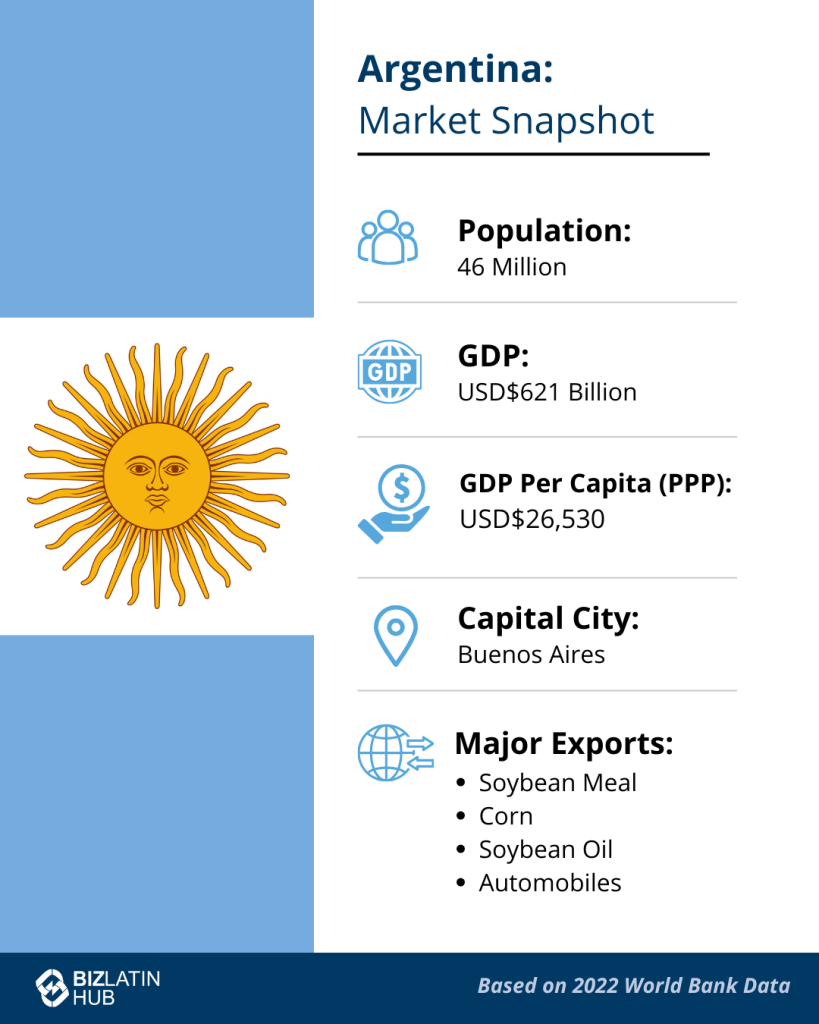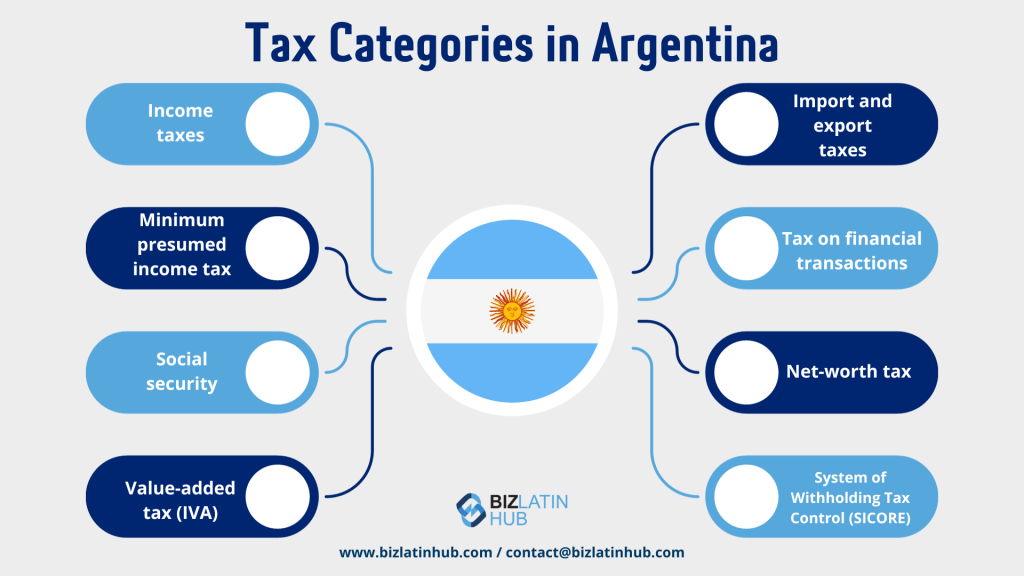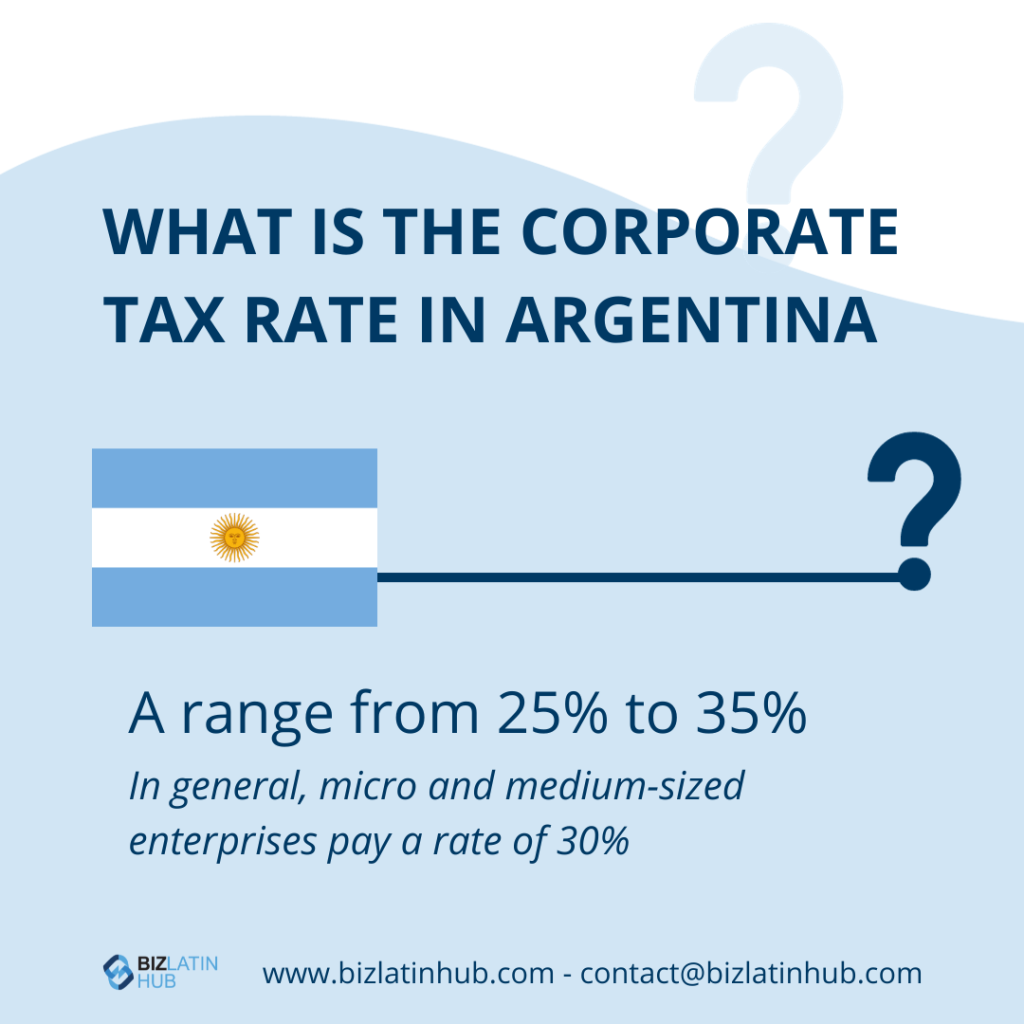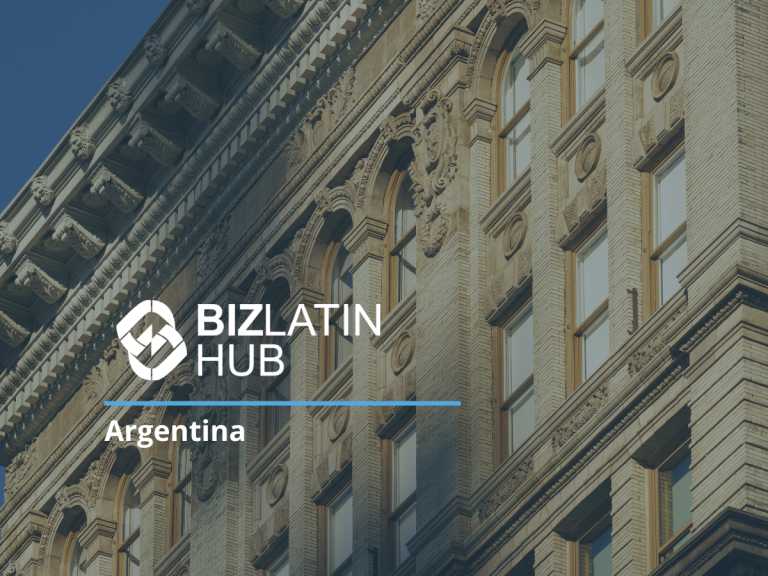
Free trade zones in Argentina are a key way for the country to develop agricultural exports, which are crucial for foreign currency earning. Known as FTZs, these areas are designed to promote certain sectors, industries and areas of the country. To make the most of their benefits, you’ll need to look at company incorporation in Argentina.
If you want to set up a business that involves exportation and importation activities to Latin America and the rest of the world, the free trade zones in Argentina could be a good option. This applies to both imported and locally manufactured goods as well as services. The latter is an increasingly large part of the Argentinian economy and the country is well positioned to offer BPO as well as other types of outsourced services.
Biz Latin Hub can help you establish your company in the free trade zones in Argentina. Not only that, but we can provide ongoing back-office support throughout your company life cycle, handling all your local administration and ensuring you stay legally compliant. That in turn allows you to relax and focus on what you do best – growing your business.
How do free trade zones in Argentina work?
Argentina operates tax-exempt trading zones to encourage importation and exportation activities. These are the Free Trade Zones (FTZ). There are ten free trade zones (FTZ) in operation in Argentina that were created to encourage business growth and development.
One important benefit for foreign companies is that they receive the same treatment as in the rest of Argentina in these FTZs. International trade is growing in Argentina as a result of decreased restrictions on foreign investment combined with the implementation of free trade zones. Now is a great time to export to Argentina.
Free Trade Zones in Argentina are export processing areas that offer various benefits to the companies that operate businesses in these areas. These benefits include no customs duties and no value-added tax (IVA in Argentina) on goods imported into the FTZ. As a corporation operating in an Argentinian FTZ you will still be liable for corporation tax at the standard rate of 35%.
Argentine legislation defines an FTZ as an area outside the “General Customs Area” (GCA) of Argentina. In these areas, neither the inflows nor outflows of exported final goods are subject to tariffs, non-tariff barriers, or other taxes on goods.
Products from within a FTZ cannot be shipped to the GCA unless they are capital goods that are not produced in the rest of the country. The labor, sanitary, ecological, safety, criminal, and financial regulations within FTZs are the same in the GCA.
Services are also permitted in certain free trade zones in Argentina, most notably in the La Plata free trade zone within the capital Buenos Aires. Although this has not so far been a priority focus for the FTZs, it is an area with significant room for growth, especially in the current economic climate of Argentina.

What industries suit the zones?
It varies depending on the actual free zone and the area in which it is located. Different zones specialise in certain sectors and industries, allowing for economic diversification. However, some fields are better served than others, including but not limited to:
- Information technology (IT) industry
- Textile industry
- Food industry
- Chemical industry
- Logistics industry
- Manufacturing
- Automotive industry
Where Are The Free Trade Zones In Argentina?
The three most popular free trade zones in Argentina are:
La Plata Free Trade Zone (ZFLP)
Inaugurated in 1997 in Buenos Aires, the ZFLP is the most important FTZ in Argentina due to its proximity to the capital and the Ezeiza International Airport. ZFLP has a port with 500 meters of dock and is a logistical hub for the movement of cargo inside and outside Argentina.
There is a good selection of warehousing, storage, showroom, and office space in ZFLP. The main industries that operate in ZFLP deal with tools and machinery, automotive, textiles, electronics and toys.
Tierra del Fuego
The Tierra del Fuego special customs area is located on an island in the south of the country, ideal for shipping from the Atlantic Ocean to the rest of the world. This zone is mainly targeted at export items such as agricultural and industrial products, although it also handles imports.
General Pico La Pampa (FTZGP)
Located in the middle of Argentina, this FTZ is operated by Aeropuertos Argentina 2000 and is designed to improve logistical operations including the use of General Pico Airport. It is a key hub for exporting agricultural products as well as industrial goods.
It takes 12 weeks to set up a company in any of these three Argentinian trade zones, and 8 weeks to set up a corporate bank account.

FAQs on Free Trade Zones in Argentina
Yes, foreign companies can operate a company in a Free Trade Zone in Argentina by following the designated registration procedure and fulfilling regulatory requirements.
A minimum investment requirement may be required in some zones.
Free Trade Zones in Argentina are export processing areas that offer various benefits to the companies that operate businesses in these areas.
These benefits include no customs duties and no value-added tax (IVA in Argentina) on goods imported into the FTZ. As a corporation operating in an Argentinian FTZ you will still be liable for corporation tax at the standard rate of 35%.
Yes, but only in some of them, most notably La Plata in Buenos Aires.
Biz Latin Hub can help you enter free trade zones in Argentina
At Biz Latin Hub, our team of multilingual company formation specialists has all of the tools necessary to help you get established in Argentina.
With our full suite of back office solutions, including legal, accounting, and recruitment services, we can be your single point of contact to help you enter and operate in Argentina, or any of the other 17 countries around Latin America and the Caribbean where we operate.
Reach out to us now for personalized assistance or a free quote.
Learn more about our team of expert authors.





